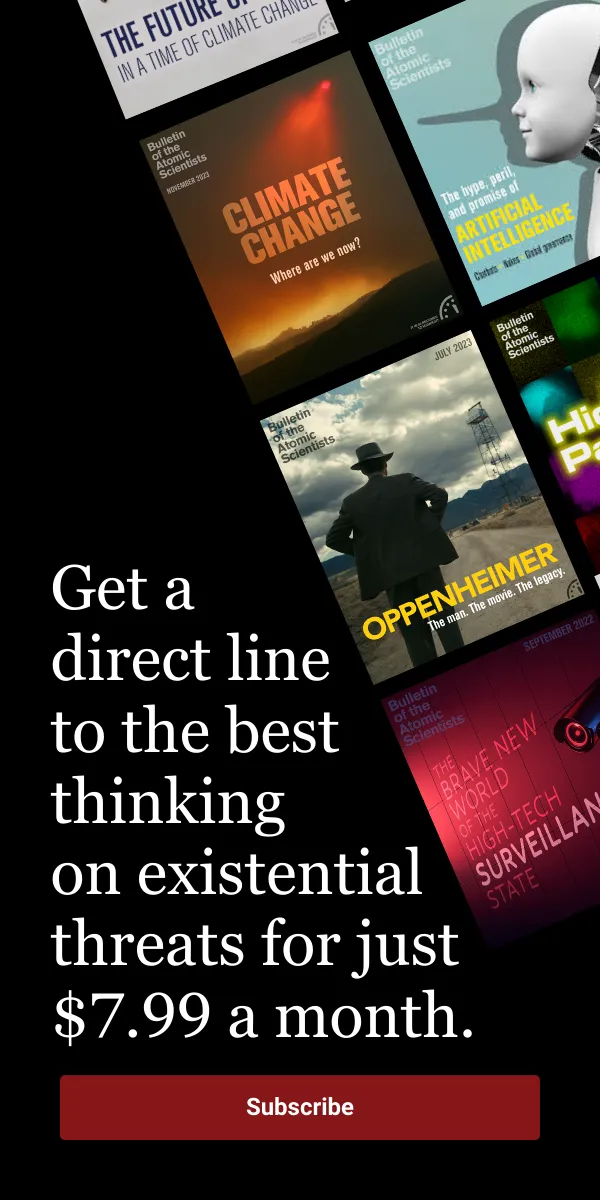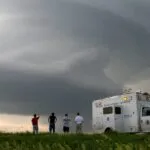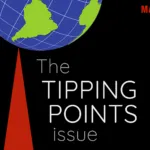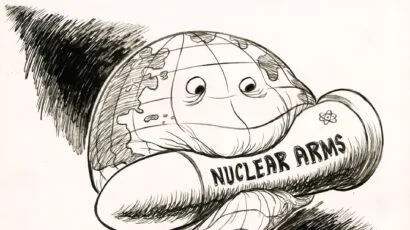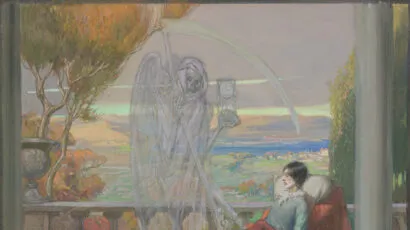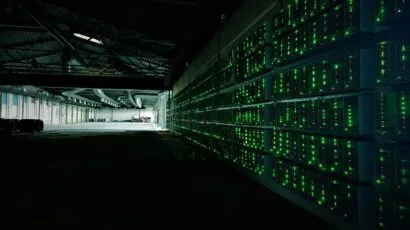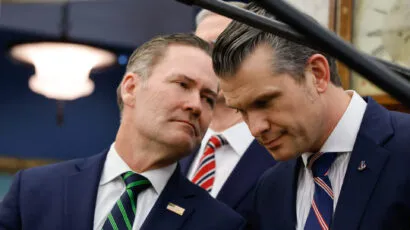Students want “can do” leaders on climate
By Josh Klein | October 2, 2019
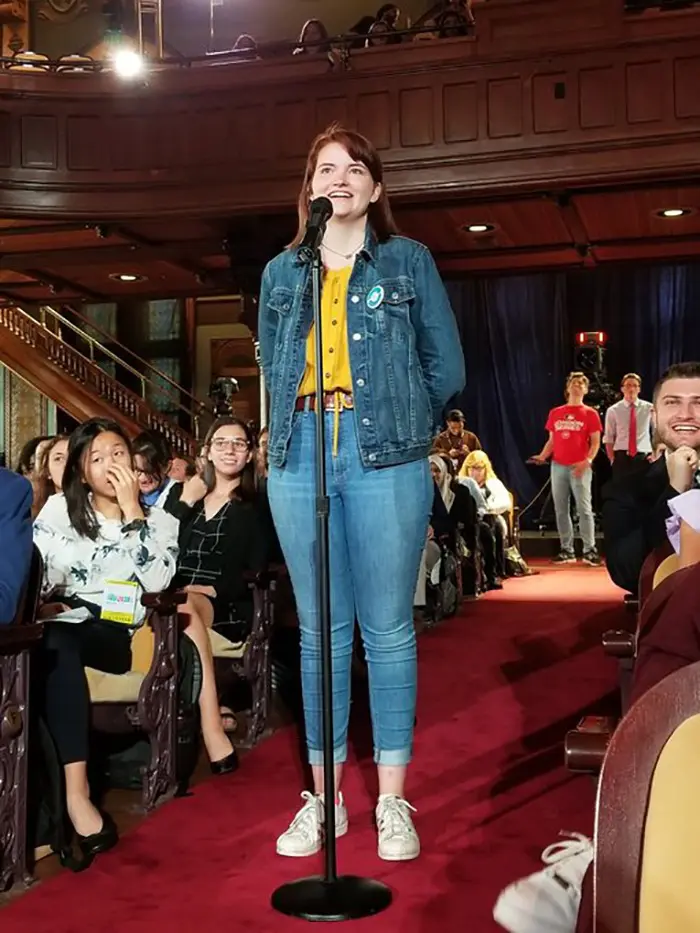 At Climate Forum 2020, Georgetown University freshman Erin Casey asks presidential candidate Michael Bennet about the pragmatism of the Green New Deal. Credit: @GUPolitics/Twitter
At Climate Forum 2020, Georgetown University freshman Erin Casey asks presidential candidate Michael Bennet about the pragmatism of the Green New Deal. Credit: @GUPolitics/Twitter
Freshman Erin Casey camped overnight to make sure she could get a seat for the recent Climate Forum 2020 at Georgetown University, arriving at the event nearly 12 hours before the doors opened.
“I want them to show a pathway to hope,” Casey told me while waiting in line. “A lot of the stuff around climate change is so cynical that it’s good to have a leader who says we can do this, because we won’t make any progress if we’re cynical about it.”
Many students share Casey’s view. We’re tired of impossible promises and failure to act. For us, the next president must follow through on climate policy. Unfortunately, although the presidential hopefuls who spoke at the Georgetown forum came with ambitious plans for climate action, few of them seemed optimistic about actually putting those plans into practice.
A student-focused forum. Twelve presidential candidates descended upon the Georgetown campus on September 19 and 20 for the climate forum co-hosted by Georgetown University’s Institute of Politics and Public Service, the online publication Our Daily Planet, New York Magazine, and MSNBC.
Each candidate had one hour to share their climate platform and take questions from a student audience in historic Gaston Hall. The candidate list included 11 Democratic hopefuls and Republican Bill Weld, a former governor of Massachusetts. Noticeably absent were Democratic frontrunners Senator Elizabeth Warren and former vice president Joe Biden, as well as Senator Kamala Harris and former Texas congressman Beto O’Rourke. Several candidates were in Iowa for an LGBTQ town hall, among other events. Of the three leading contenders, only Senator Bernie Sanders was in attendance.
The Climate Forum was the second such event in recent weeks and closely followed a CNN event that was not student-driven. Because of the Georgetown forum’s focus on young people, students were especially motivated to attend.
What students wanted to hear. I interviewed students waiting in line to hear the candidates and listened to six of the candidates myself. Students realize the failings of the past and know the time to act is now. “Our time frame [to act] has significantly decreased and we have done essentially nothing,” Elijah Hines, a Georgetown freshman, told me, also noting the plethora of candidates that spoke at the forum. “So having essentially the entire Democratic party here advocating for action before it’s too late is incredibly important for the future,” Hines said.
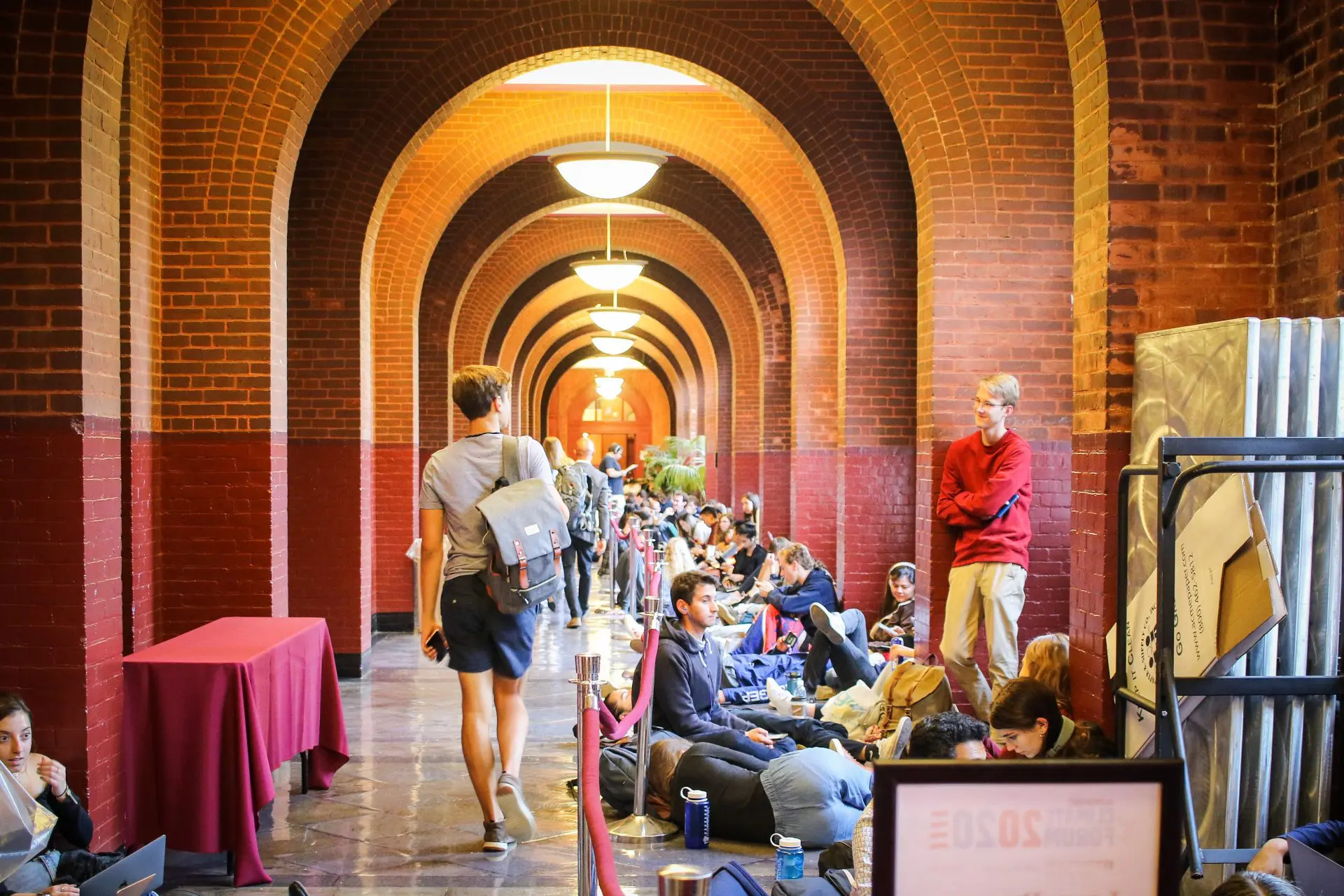
Students in line took ownership of the climate change issue, knowing that their future is at stake. Another freshman told me he thought climate change was our collective responsibility. “If it’s not a core focus for the candidates, then it’s really neglect on our part.”
At the same time, students are looking for leadership as an essential element of progress. “I’m looking for specific details rather than bold claims. I want to know the how and the why,” said one student.
What the candidates said. The candidates did their best to provide students with the details of their plans. But at the end of the day, none of the candidates promised they’d be able to make good on their lofty proposals. Sen. Michael Bennet, Mayor Pete Buttigieg, and former Maryland Congressman John Delaney each stressed that their plans were reasonable enough to take effect. However, on an issue like climate change, any plan that can make it through an especially divided Congress may not have an ambitious enough framework to create quick, lasting change.
Sanders was candid in his remarks, lauding his $16 trillion climate plan but acknowledging that he was unsure whether he’d be able to make the necessary progress to get to net-zero emissions by 2050. Whether Sanders’ plan is the most ambitious among the candidates is up for debate, but it certainly is the most expensive.
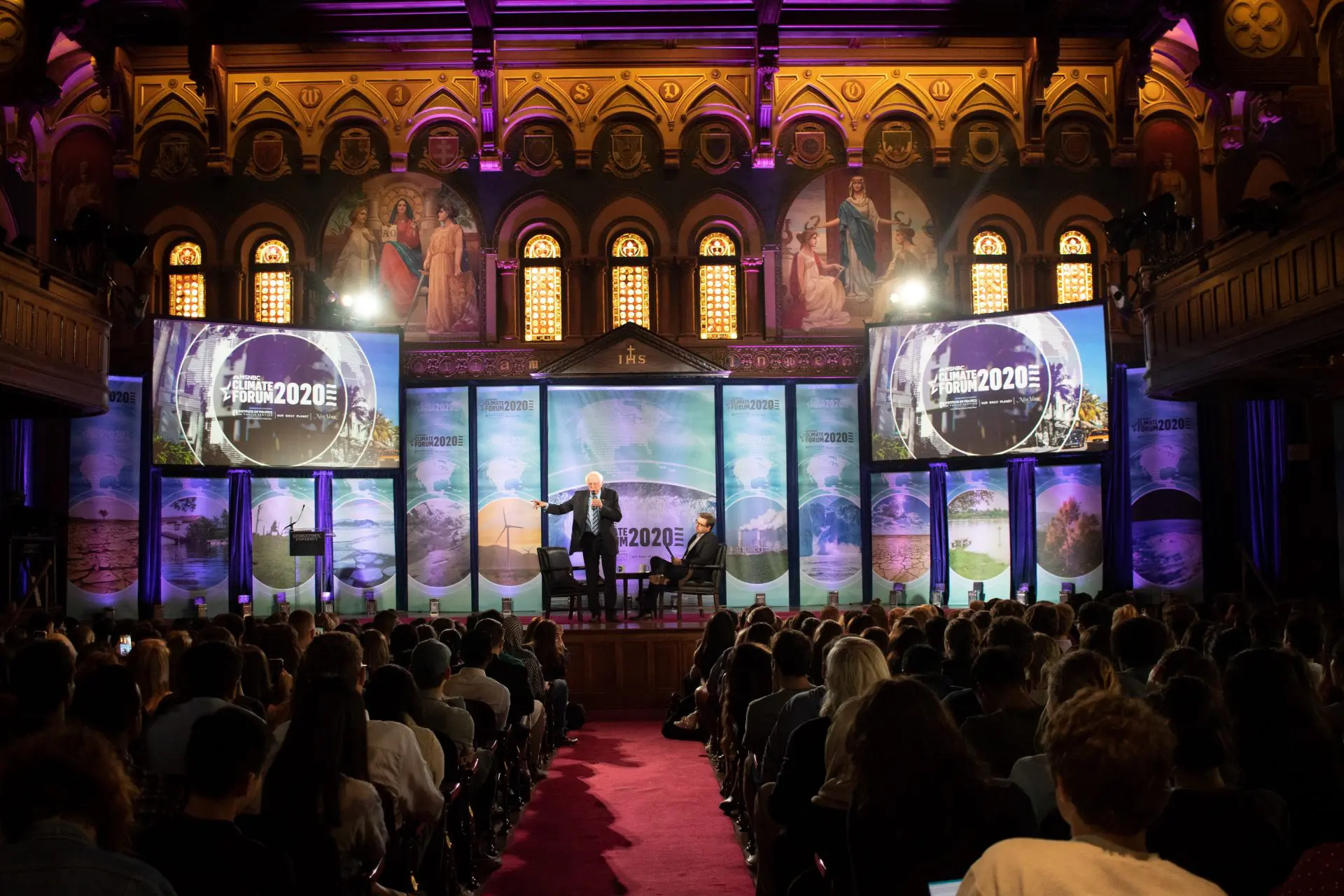
Especially lacking from the debate was a sense of optimism and inspiration that is essential for combating the climate crisis. Several of the candidates chose to point fingers at large corporations for their role in rising emissions, and this may be valid, but most candidates—aside from Senator Cory Booker—failed to share with the audience what we, as students, can individually do to make positive change.
In the first time slot of the event, Bennet reminded the student audience that passing any ambitious plan would require a starkly different composition in Congress, specifically in the Senate. While I understand the importance of a strong coalition to act on the climate crisis, Bennet’s proposition was sincerely missing the hope and energy that is so essential. Without hope there can be no progress, no action. We must believe we can succeed—if not for our own futures, for the next generation. As Casey put it, cynicism will get us nowhere.
A leadership vacuum. I left the forum feeling well informed, but no more convinced that any candidate would be able to successfully lead the colossal global effort required to reach net-zero emissions. Students who aspire to be leaders of the next generation cannot accept that from our candidates. We cannot be lulled into complacency by a lack of inspiration from our leaders. As Buttigieg put it, the climate crisis is a “moral issue.” Combating it will be the greatest challenge of our generation, and our mindset must be that we can do this. If our leaders don’t inspire us, we must do it on our own.
I talked to one student who put it best. “It’s hard to empathize with our future selves,” she said. “But it’s really something we have to consider. There’s only so much we can do by turning off the lights and stopping the faucet.”
Together, we make the world safer.
The Bulletin elevates expert voices above the noise. But as an independent nonprofit organization, our operations depend on the support of readers like you. Help us continue to deliver quality journalism that holds leaders accountable. Your support of our work at any level is important. In return, we promise our coverage will be understandable, influential, vigilant, solution-oriented, and fair-minded. Together we can make a difference.
Keywords: 2020 election, Climate Forum 2020
Topics: Climate Change, Voices of Tomorrow

